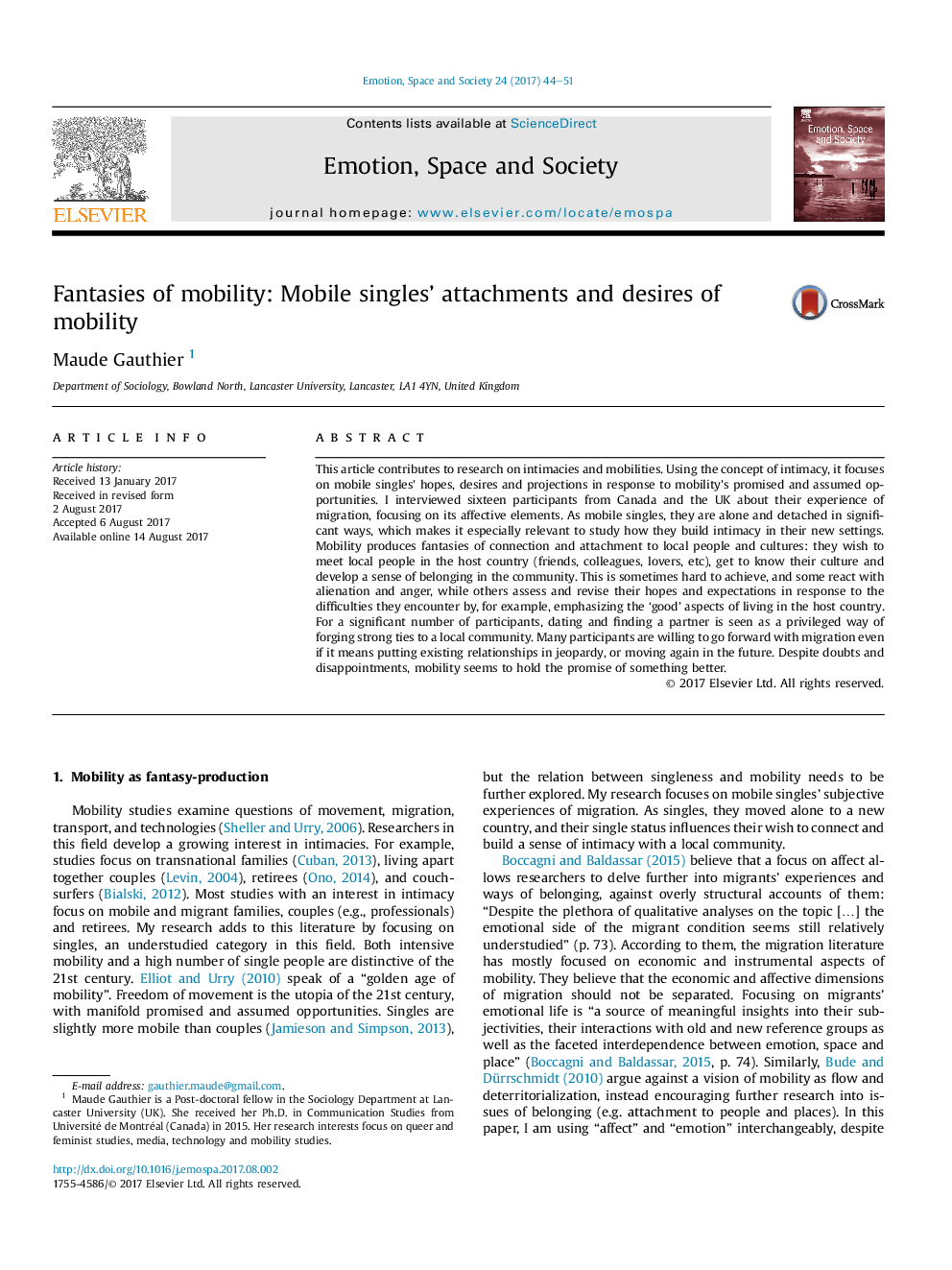| Article ID | Journal | Published Year | Pages | File Type |
|---|---|---|---|---|
| 5045466 | Emotion, Space and Society | 2017 | 8 Pages |
â¢Mobile singles respond to the appeal of mobility by entertaining fantasies of connection.â¢Mobility discourses create expectations of closeness and belonging.â¢Singleness feeds into these fantasies of mobility because it is associated to freedom and opposed to attachment.â¢Mobile singles' experiences bring them to adjust their hopes or to be left with feelings of unsatisfaction.â¢Despite their doubts and disappointments, mobility always seems to hold the promise of something better.
This article contributes to research on intimacies and mobilities. Using the concept of intimacy, it focuses on mobile singles' hopes, desires and projections in response to mobility's promised and assumed opportunities. I interviewed sixteen participants from Canada and the UK about their experience of migration, focusing on its affective elements. As mobile singles, they are alone and detached in significant ways, which makes it especially relevant to study how they build intimacy in their new settings. Mobility produces fantasies of connection and attachment to local people and cultures: they wish to meet local people in the host country (friends, colleagues, lovers, etc), get to know their culture and develop a sense of belonging in the community. This is sometimes hard to achieve, and some react with alienation and anger, while others assess and revise their hopes and expectations in response to the difficulties they encounter by, for example, emphasizing the 'good' aspects of living in the host country. For a significant number of participants, dating and finding a partner is seen as a privileged way of forging strong ties to a local community. Many participants are willing to go forward with migration even if it means putting existing relationships in jeopardy, or moving again in the future. Despite doubts and disappointments, mobility seems to hold the promise of something better.
